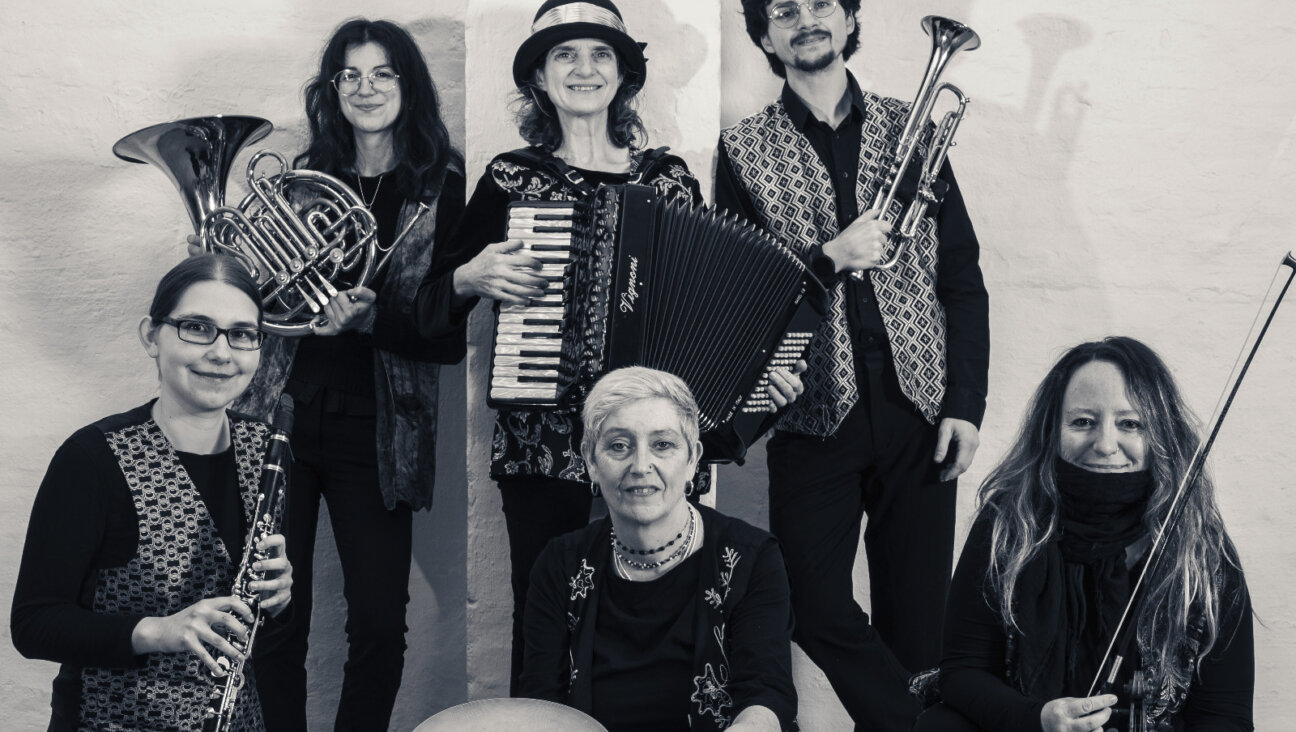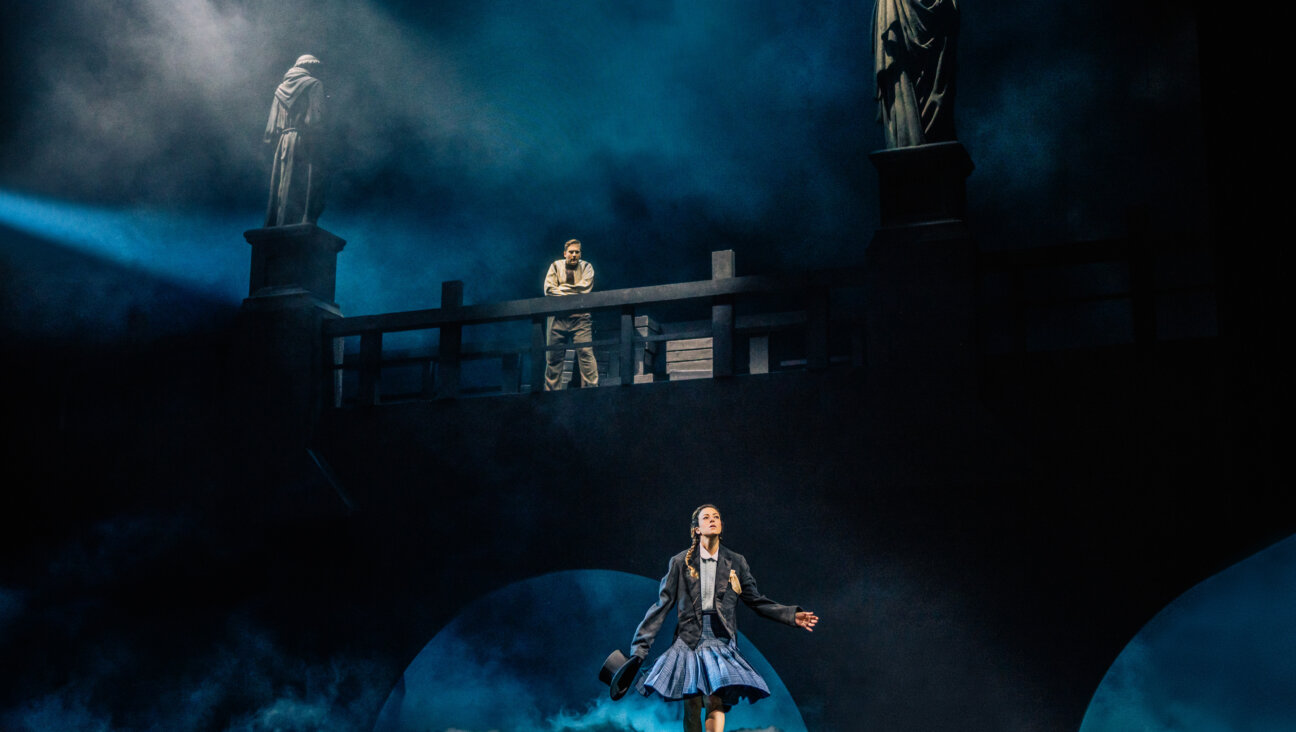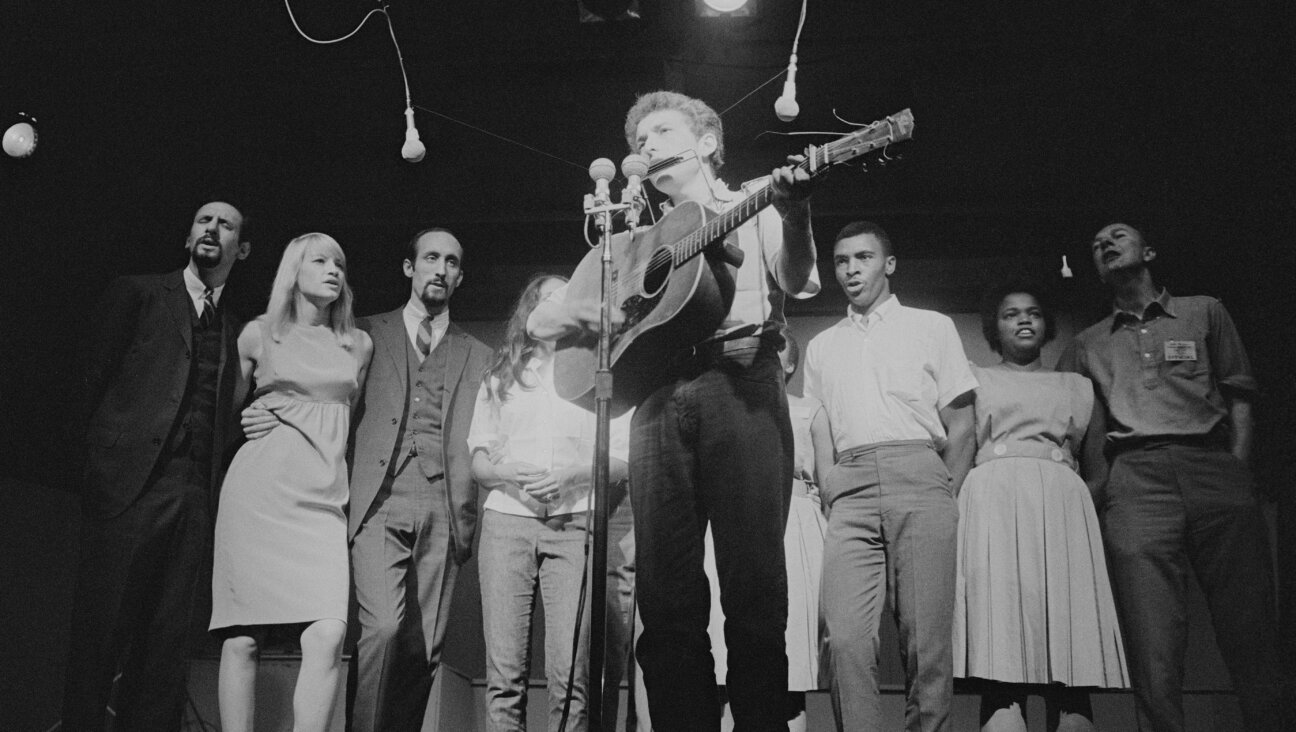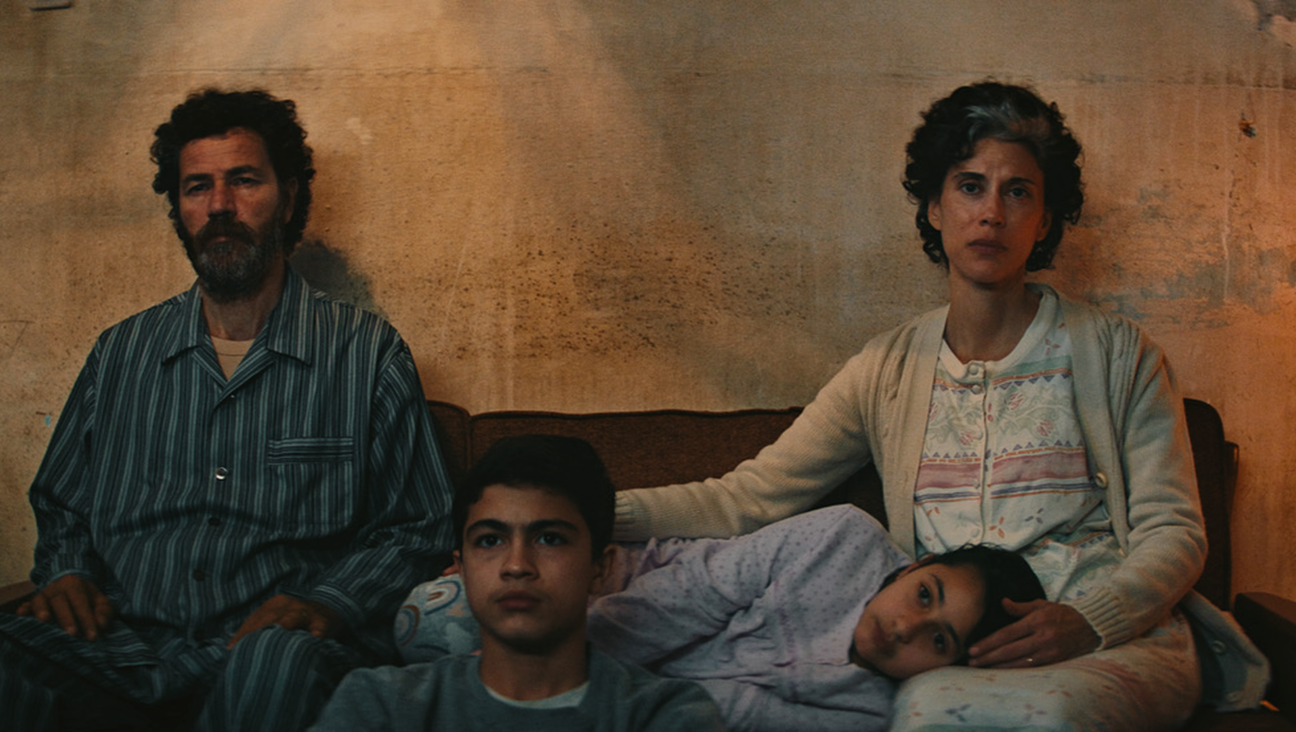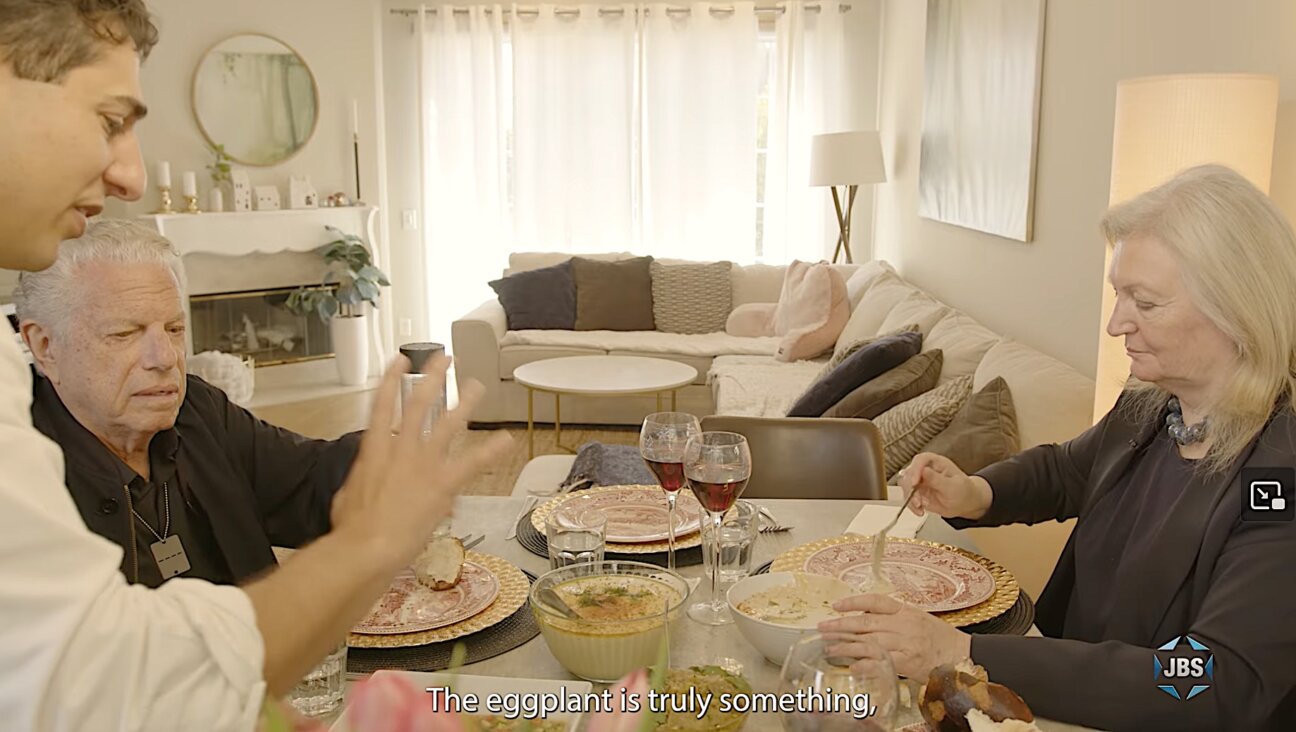Who Knew Ruth Bader Ginsburg’s Son Is Revolutionizing World Music?

Image by Courtesy of James Ginsburg and Cedille Records
Jewish roots are emerging in contemporary music from remarkably diverse performers who are often not Jewish. Beyond the intriguing klezmer revival, there’s a steadily growing movement of typically classically trained musicians who are discovering mostly European Jewish music as a base for alchemical combinations of past and present.
When classical guitarist Denis Azabagic, originally from Bosnia, and his wife, flutist Eugenia Moliner, who hails from Spain, visited his family back home in the mid-1990s, Azabagic recalls his great-aunt talking to his wife in Spanish.
“Eugenia was startled,” said Azabagic, an artist on Chicago’s Cedille Records label. “But the rest of us were astonished. Why was she speaking Spanish? When did she learn it?” Eugenia realized that her great-aunt was speaking Ladino, the language of Sephardic Jews.
“My great-aunt then said her mother converted from Judaism to Islam as the Second World War began, to avoid persecution but leaving them as one of only two originally Jewish families in Tuzla, our hometown,” Azabagic told me.
Neither Azabagic, who leads the guitar program at the College of Performing Arts, at Chicago’s Roosevelt University, nor Moliner, a faculty member there, considers himself Jewish; but their most recent album as the Cavatina Duo, “Sephardic Journey,” includes five new commissioned compositions inspired by early Sephardic melodies, the profound result of years of discovery following that visit to Bosnia. Just one of those composers is Jewish.
Weaving together historical, ethnic and cultural musical heritage with contemporary sensibilities is precisely the sort of projects that are emblematic of the indie Cedille (say-DEE) Records, whose mission is “to enhance the world’s catalog of recorded music by releasing artists’ explorations of new and underrepresented compositions and documenting their important interpretations of standard repertoire,” according to the president, James Ginsburg, who founded the not-for-profit label in 1989 while in law school at the University of Chicago and, as best he knows, is still considered a student on leave.
That indeterminate status is no longer a concern to his mother, Associate United States Supreme Court Justice Ruth Bader Ginsburg. She and her late husband are responsible for the bug James caught when they took him to see Michael Tilson Thomas conduct the New York Philharmonic performing Igor Stravinsky’s “The Firebird” in New York, where the family lived, when he was 8 years old.
Ruth Bader Ginsburg is a fan of classical music and opera, which she sometimes attended with her colleague, the late justice Antonin Scalia.
James Ginsburg’s musical judgment and production skills are formidable enough to have earned his label nominations and Grammy Awards, as at the most recent ceremony, where the relentlessly inventive Eighth Blackbird ensemble won its fourth for their “Filament” album, and another Cedille ensemble, the New Budapest Orpheum Society (an updated name of the troupe of Jewish musicians in Vienna roughly 1890–1930) received a nomination for the album “As Dreams Fall Apart: The Golden Age of Jewish Stage and Film Music.” The Society was founded at the University of Chicago by music professor Philip Bohlman, who ferreted out some of the songs for “Dreams” in the Austrian censors’ office in Vienna. “The Nazis were great record-keepers,” Ginsburg said, “so now we can
bring this great music back to life.”
By recognizing the value of what artists feel is important, Ginsburg has been building an oeuvre of significant Jewish music. It’s a surprise realization for someone raised in a “definitely reform“ home punctuated only occasionally by Yiddish from elderly Russian relatives. “Like many other Jewish families, we did have Richard Tucker albums,” he said, referring to the great cantor and tenor (original name Reuben Ticker), “but ours were his opera performances.”
Ginsburg says “it’s really a coincidence” that Cedille released “Sephardic Journey” (which Ginsburg also produced) in April, followed by “Nedudim” (“Wandering“) in June, by Chicago-based Fifth House Ensemble along with Baladino, an Israeli folk music ensemble that combines “Baladi” (“land” in Arabic) with Ladino in another compilation of traditional Sephardic and Ladino melodies. Most of the artists of FHE are not Jewish, and their treatment of the traditional Sephardic melodies are entirely different from those on “Sephardic Journey.”
Glancing through the Cedille catalog, one also finds a world premiere recording of 1995 chamber music by David Diamond, an underappreciated American Jewish composer whose Jewish themes were influenced by the performances of celebrity cantors such as Yossele Rosenblatt (“the Jewish Caruso”).
“Diamond’s music was the impetus for the album,” Ginsburg said. “He was simply a great composer and much of his work is not recorded.” And Ginsburg is frank that he isn’t pursuing the Jewish angle. “It’s the artists and what they want to do, and it happens that in these recent recordings we’re in a Sephardic moment — because of the artists. The themes in ‘Sephardic Journey’ are, of course, Sephardic, but it’s still chamber music, whereas ‘Nedudim’ is more of a popular or world music sound, but still Sephardic-inspired music with new arrangements and interpretations played by classical musicians.”
This particular Jewish confluence in Cedille’s corpus may be coincidental. Either way, though, Cedille is building an essential bridge into a realm of musicology whose original composers and practitioners, as well as the history of their times, are nearly out of our reach.
Ronald Litke is a freelance writer based in Chicago.

